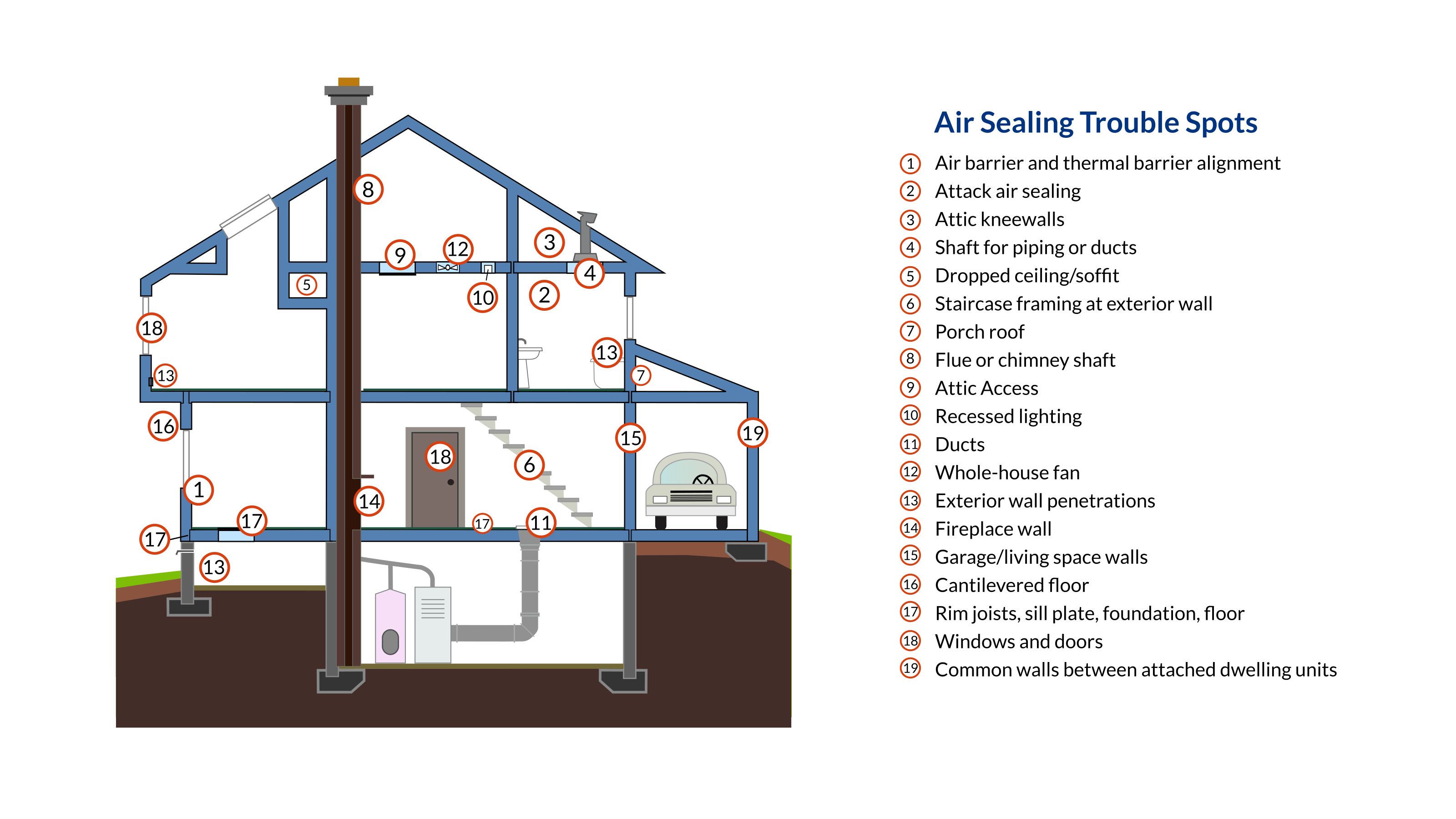
Controlling Heat and Air Quality
Work in this area can involve major reinvestments in your buildings, but if you’re already planning to do work, it makes sense to consider all your available options.
There may be grants available (see Building envelopes, energy efficiency and funding options) to help you navigate your way though the possibilities. You can also talk to staff working with the CHF BC long-term planning team.
- Reviewing heating (and cooling) systems
- In 2022, most non-profit co-op buildings in BC don’t offer cooling, but demand for cooling is likely to increase as the climate continues to warm. New, energy-efficient systems can help with mitigation efforts but can also help with adaptations. Heat pumps are more efficient than electric baseboard heating, but they also offer options to provide cooling.
- Insulation
- Improving insulation helps avoid waste; you waste less money, but you also reduce the waste by-products of the energy generation to heat or cool our living spaces. At the same time, insulation can improve the comfort of residents.
- It can be added to attics, to walls (inside or out) and basements. New exterior insulation will add to the cost of envelope upgrades but is definitely worth considering before making final decisions on the scope of your next envelope project.
- Blocking air leakage
- A lot of energy can be lost due to air leakage. If you’re in the heating season, you don’t want to have to replace warm air leaking out; in the summer, you won’t want cooler air to escape.
- Cracks, holes, and openings into the envelope are all targets. These spots not only transport energy but also let moisture penetrate the envelope and living spaces.
- Although large renovations get the most attention, there are smaller actions that can yield significant results:
- Check weather-stripping around windows, doors, and power outlets.
- Caulk around stationary parts of windows and doors.
- Caulk around power outlets and wiring boxes, plumbing, and ducting on the surfaces in touch with the exteriors of the building.
- Even closing the doors of unused rooms can help save a great deal of energy and let the energy you use make an impact where it concerns you most.
Tip #1: BC Hydro offers suggestions on sealing windows and doors and the ECAP program (see Building envelopes, energy efficiency and funding options) offers direct help to members.
Tip #2: Look for stains on the ceilings, floors, walls, windows, and other openings. Stains can be a sign of moisture presence which could have been transported with the air flow from outside.